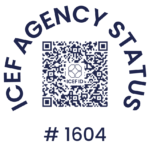Our online Global HRM MSc equips you with skills to generate, critique and refine workforce strategies at individual, organisational, and international levels. It enables you to validate and enhance your existing knowledge and experience in areas such as employment relations, organisational behaviour, and contemporary HR practice.
Guided by our experts, you’ll have the opportunity to apply what you learn to a research and consultancy project. This will mirror the challenges faced by HR directors and consultants.


